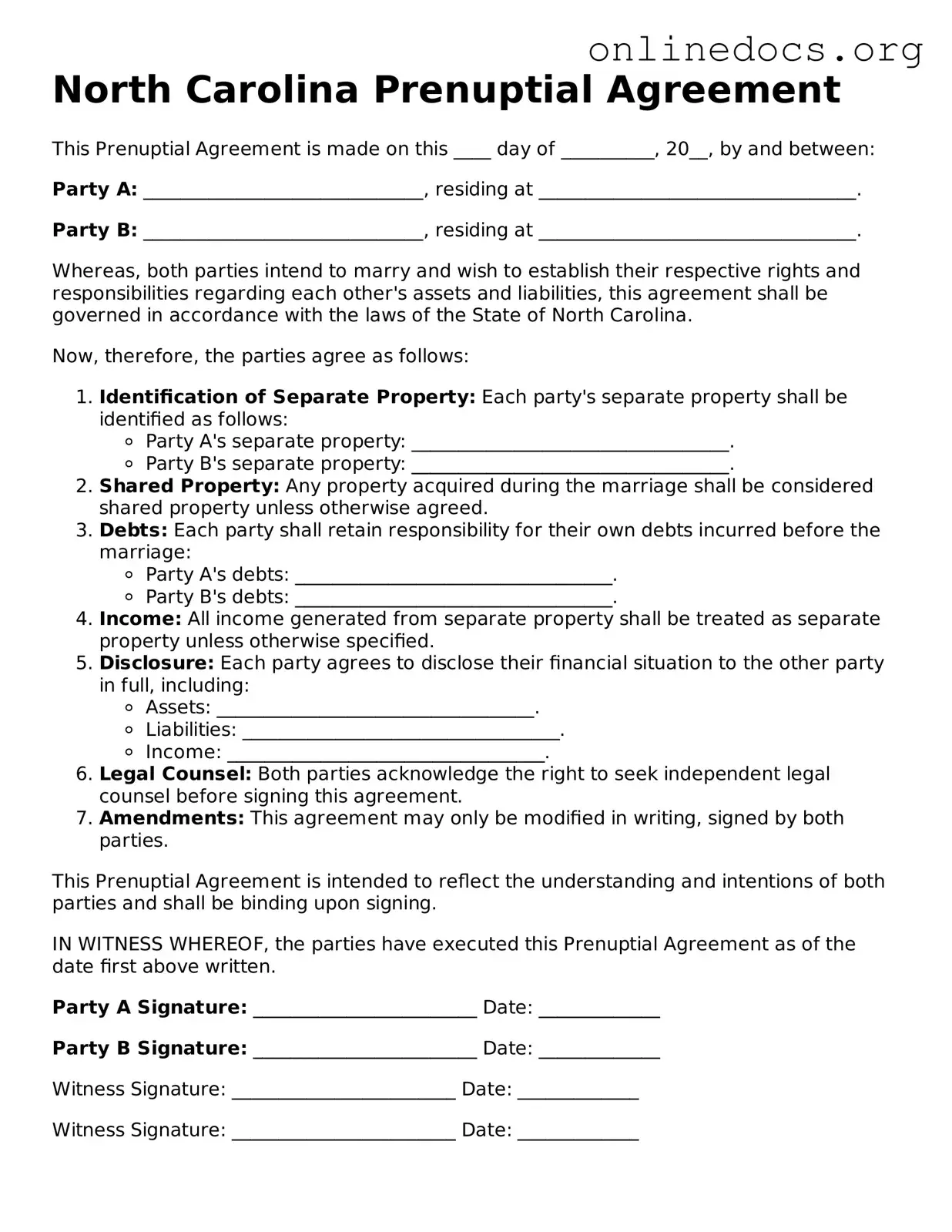Filling out a prenuptial agreement in North Carolina can be a straightforward process, but many people make common mistakes that can lead to complications later. One frequent error is not being clear about the terms. Vague language can create confusion. It’s essential to be specific about what each party is bringing into the marriage and how assets will be handled.
Another mistake is failing to fully disclose assets. Both parties must be transparent about their financial situations. Hiding or underreporting assets can lead to legal disputes. It’s vital to list all property, income, and debts accurately.
Some couples forget to consider future circumstances. A prenuptial agreement should account for changes in income, property, and family situations. Not addressing these possibilities can render the agreement less effective in the long run.
Additionally, not consulting with a legal professional can be a significant oversight. While it might seem like a simple form, having an attorney review the agreement ensures that it meets all legal requirements and protects both parties. Legal guidance can also help clarify any misunderstandings.
Another common error is neglecting to sign and date the agreement properly. Both parties must sign the document in the presence of a notary. Without proper signatures, the agreement may not hold up in court.
Some individuals also make the mistake of rushing through the process. Prenuptial agreements should be given the time and attention they deserve. Hasty decisions can lead to oversights and regrets later.
Moreover, failing to update the agreement after significant life changes is another pitfall. Major events, such as the birth of a child or a substantial change in income, may necessitate a revision of the agreement. Keeping the document current is crucial.
Couples sometimes overlook the importance of mutual agreement. Both parties should feel comfortable with the terms. If one person feels pressured or coerced, it could lead to disputes down the line.
Lastly, not discussing the prenuptial agreement openly can create tension. It’s important to communicate openly about the reasons for having the agreement. This transparency can foster trust and understanding between partners.
